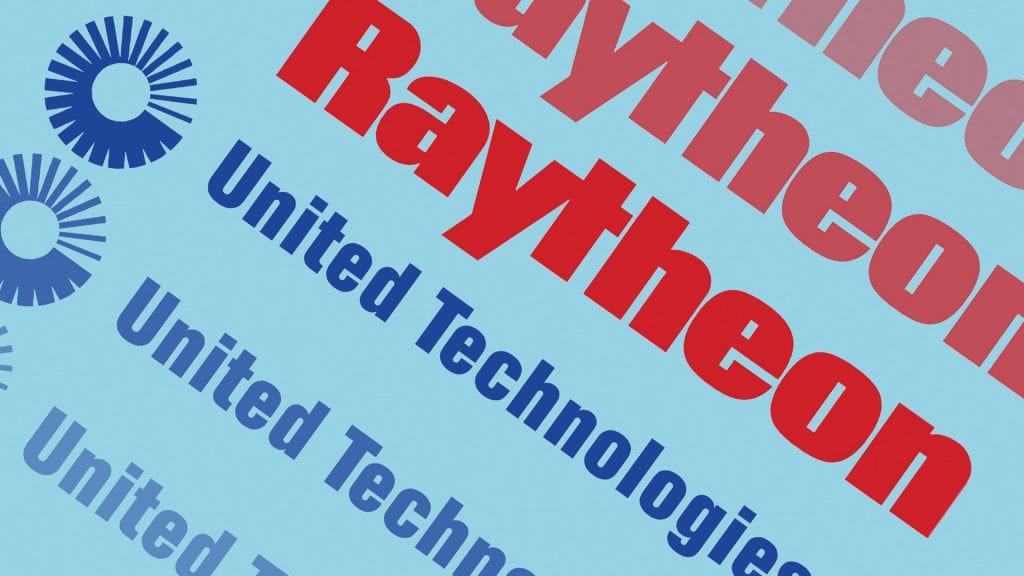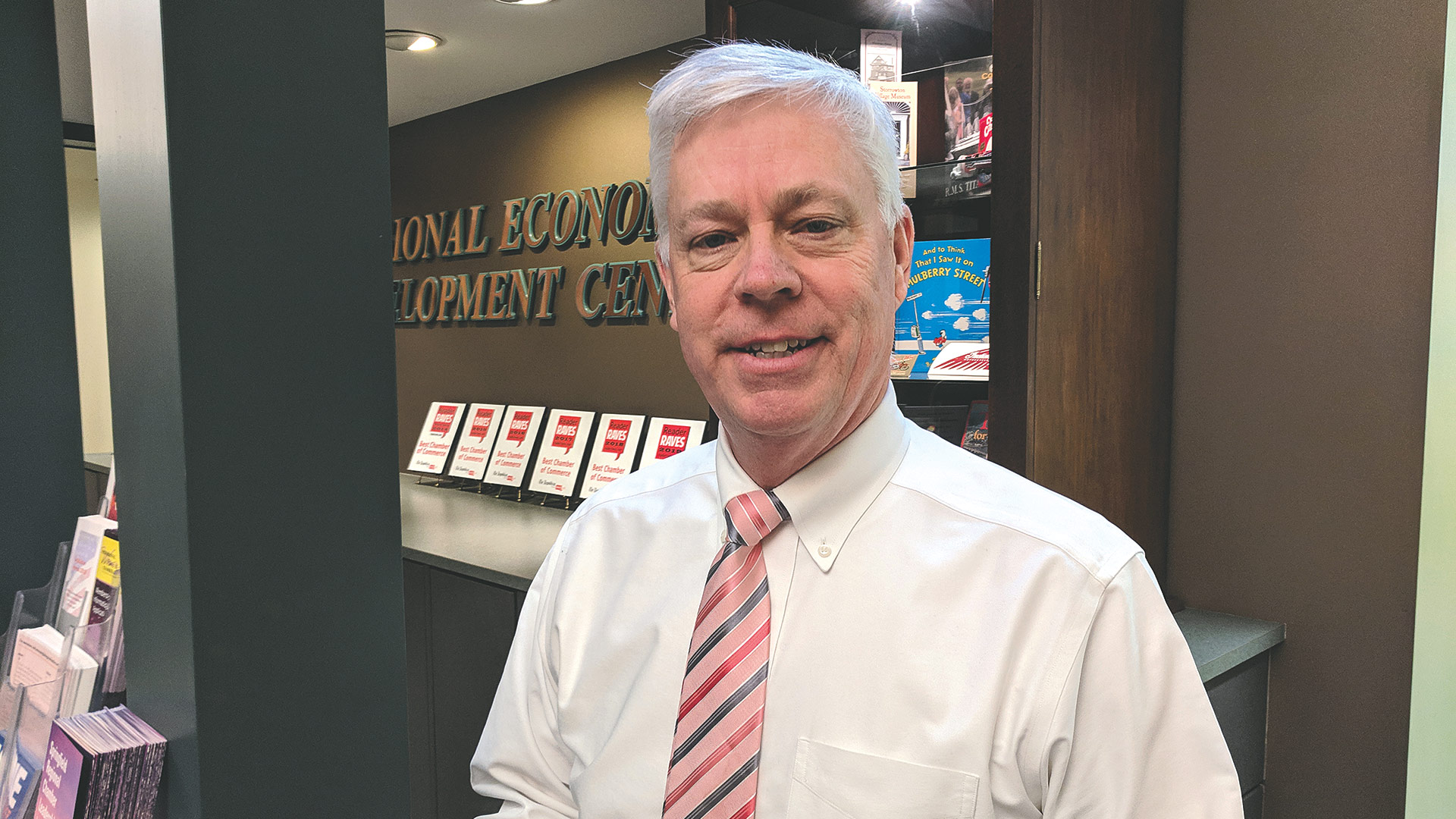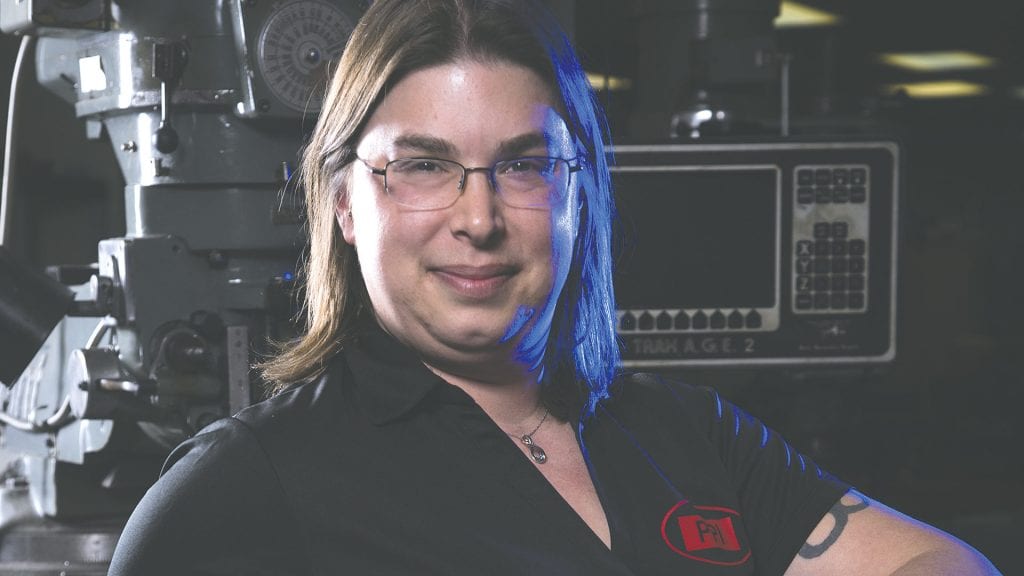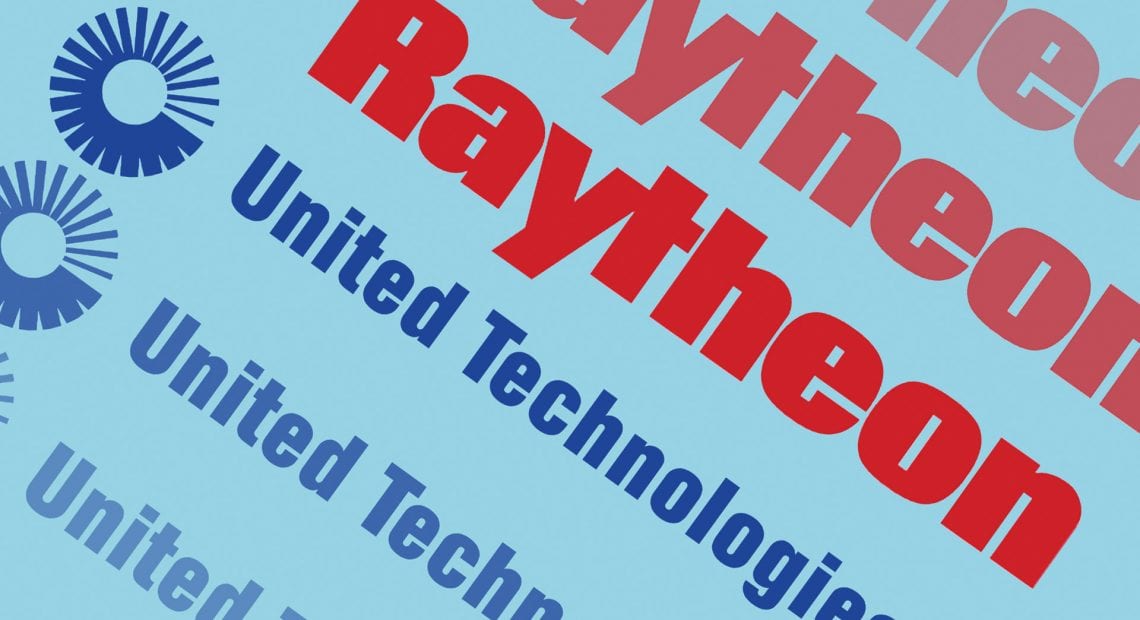Taking Flight
 Since the announcement last month that defense and aerospace giants Raytheon and United Technologies will merge into one firm based in Eastern Mass., few other details have emerged, and questions remain about the impact on the companies’ workforce, particularly those currently based at UTC’s Connecticut plant. But some see potential growth in the merger, which may bode well for the many Western Mass. machine shops — and their 5,000 employees — that make components for those companies.
Since the announcement last month that defense and aerospace giants Raytheon and United Technologies will merge into one firm based in Eastern Mass., few other details have emerged, and questions remain about the impact on the companies’ workforce, particularly those currently based at UTC’s Connecticut plant. But some see potential growth in the merger, which may bode well for the many Western Mass. machine shops — and their 5,000 employees — that make components for those companies.
Rick Sullivan calls it the “invisible backbone of the economy” in Western Mass.
He refers to precision manufacturing, and he chooses each of those words for a reason. Machine shops — virtually all of them in the small (make that very small) to medium-sized range — exist in almost every community in the four counties of Western Mass.
“Those companies, if we could put them together under one room, it would be a giant company that gets everyone’s attention all the time — national attention. It’s that significant,” said Sullivan, president and CEO of the Western Mass. Economic Development Council.
As for invisible? “These shops each have a real niche and do high-quality work, and you don’t see that impact every single day,” he went on. “But it’s a true center of excellence. It’s important.”
Among the work many of these shops do is supplying components for major companies — like Raytheon and United Technologies Corp. (UTC). And when two companies of that size announce plans to merge, as they did last month, it sends ripples of concern through that often-invisible but critical industry, simply because of the uncertainty it produces.
“Obviously, when anything changes out there, we have to evaluate that change in terms of what it’s going to mean locally,” Sullivan told BusinessWest. “No question, the relationship of Massachusetts manufacturers with both companies is significant.”
The merger — which will create one of the world’s largest defense companies, with combined sales of $74 billion — will close in the first half of 2020 after United Technologies completes the previously planned separation of its Otis and Carrier businesses.
The combined company, to be named Raytheon Technologies Corp., will be a major player in defense research and technology — not that the two companies weren’t already. In announcing the merger, the two giants said they will be able to develop new technologies more quickly, with combined research and development spending of $8 billion annually and more than 60,000 engineers.
In many ways, that’s good news, but there are workforce-related questions, state Sen. Eric Lesser noted the day the merger was announced.

Rick Sullivan says the economic impact of the region’s precision manufacturers is significant, even as it often flies under the public radar.
“The UTC-Raytheon deal means another major corporate HQ is relocating to Massachusetts, which overall for Massachusetts is positive news and will be celebrated in Boston,” he said, while quickly noting that a sizable portion of UTC’s current workforce lives in Greater Springfield.
“A quick drive past the huge parking at UTC’s facility across from Bradley Airport, for example, shows a lot of Massachusetts license plates,” he went on. “I personally know many constituents that work at the UTC facilities in both Windsor Locks and Farmington — engineers, electricians, accountants, salespeople, etc. — almost all very good and well-paying careers with great career paths at a variety of education levels.
“Long term, what will happen to those Western Mass. UTC jobs as a result of this merger?” Lesser asked. “If facilities are relocated to Metro Boston, what will losing those jobs mean for Western Mass.? It won’t be positive. We need good jobs at both ends of Massachusetts, and everywhere in between.”
The fact that Raytheon Technologies will be based near Boston drew a complaint from U.S. Sen. Richard Blumenthal of Connecticut, who said he is concerned about the potential workforce impact on his state. A member of the Senate Armed Services Committee, Blumenthal also urged the Defense Department, the Justice Department, and other agencies to examine the potential impact on costs and competition in the defense industry.
Maintaining the Flow
Then there’s the matter of protecting the flow of work to the region’s small machine shops and their 5,000-plus employees. It’s an area of concern for Kristin Carlson in both her roles — as president of Peerless Precision in Westfield and also of the Western Mass. chapter of the National Tooling and Machining Assoc.
She recently told BusinessWest that business is booming for Peerless and most other local precision manufacturers, and that the region has a reputation across the country and around the world as a precision-machining hub. The industries the sector serves — aerospace, defense, oil and gas, and some commercial sectors — are surging, and a report issued last year by the Precision Manufacturing Regional Alliance Projects suggests that the manufacturing sector statewide will need to fill up to 1,500 jobs this year, due to growth and retirement.
“Obviously, when anything changes out there, we have to evaluate that change in terms of what it’s going to mean locally. No question, the relationship of Massachusetts manufacturers with both companies is significant.”
So there’s a lot at stake when a move of this scale happens — and Carlson hopes the impact is a net positive.
“A lot of the machine shops are already suppliers to Raytheon or UTC,” she said. “From what I can see, this merger presents the opportunity for existing suppliers to those two separate companies to become suppliers to the new company, which can increase opportunities for local machine shops and other manufacturers — which means growth and more jobs.”
As for the move of UTC to Eastern Mass., where Raytheon is already based, Carlson doesn’t expect the company to move its entire workforce, although it hasn’t made those plans clear yet.
“I don’t know what the grand plan is,” she said. “My perspective is, I don’t think they’re going to be moving everyone to Eastern Mass. I anticipate some jobs might get transferred over to the new location, but I don’t think they’ll be shutting down or moving everyone over.”

Kristin Carlson says the Raytheon-UTC merger may present opportunities to increase an already-robust pipeline of work.
Raytheon Technologies intends to focus on hypersonics — vehicles and weapons that can fly faster than the speed of sound — as well as intelligence and surveillance systems, artificial intelligence for commercial aviation, and cybersecurity for connected planes.
Raytheon was founded in 1922 and makes missiles, including the Patriot system, and cybersecurity tools. United Technologies was founded in 1934 and makes products for the aerospace and building sectors, including airplane engines and spacesuits.
“Our two companies have iconic brands that share a long history of innovation, customer focus, and proven execution,” United Technologies Chairman and CEO Greg Hayes noted in a statement last month.
Hayes will become the CEO of Raytheon Technologies. Two years after the merger closes, he will add the title of chairman. Raytheon Chairman and CEO Tom Kennedy will be appointed executive chairman. The company’s board will include eight directors from UTC and seven from Raytheon.
Defense mergers are nothing new in recently years. In 2018 alone, there were eight mergers exceeding $1 billion in value, including an all-stock deal between L3 Technologies and Harris and General Dynamics’ acquisition of CSRA Inc., according to PricewaterhouseCoopers.
Building on Relationships
Still, in Western Mass., much of the focus has come down to jobs, and preserving the working relationships that exist between small machine shops and large players like Raytheon and UTC.
“Those relationships as subcontractors are vital to us,” Sullivan told BusinessWest. “I do think, moving forward, those connections can even be strengthened. In Western Mass., we recognize that we have an economy that goes east-west, but as importantly, and maybe even more importantly, it goes north-south also. We obviously will be watching closely.
“Raytheon is obviously a big player regionally in Western Mass.,” he added. “We need to grow those relationships, and I do think there are opportunities for growth.”
Joseph Bednar can be reached at [email protected]






